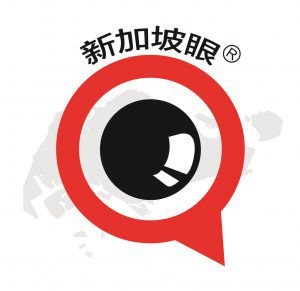Singapore is not the most favorable destination for single Chinese women to freeze their eggs
From July 2023, Singapore will allow elective egg freezing for single women, a special medical procedure that may attract many patients from mainland China. This is because mainland China currently prohibits single women from freezing their eggs, yet an increasing number of highly educated single women across the country are delaying marriage and childbearing in pursuit of career advancement and lifestyle pursuits. Soaring property prices, coupled with rising living, childcare and education costs in many large mainland Chinese cities, will necessitate young couples to accumulate significant savings before starting a family, so many working women will also have to delay childbearing. Therefore, offering them a way to preserve their fertility through overseas egg freezing would represent a lucrative business opportunity. However, high costs and strict egg freezing regulations may hinder Singapore's entry into the Chinese medical tourism market.
Firstly, the medical costs for egg freezing in Singapore are much more expensive than in other destinations such as Thailand or Malaysia, which also have many excellent fertility clinics. Typically, an egg freezing treatment cycle costs about 10,000 to 12,000 Singapore dollars, which is about 50,000 to 60,000 RMB. In addition to higher medical costs, daily living expenses and hotel accommodation are also much higher than in cheaper destinations such as Thailand or Malaysia. This is a significant cost factor because the egg freezing process takes several weeks to complete.
Second, egg freezing is limited to women under the age of thirty-seven. This would therefore disqualify many older single Chinese women who are more likely to have the necessary financial resources to finance the procedure because they have more accumulated savings than younger women.
Third, in Singapore, only married women can undergo IVF procedures with frozen eggs. This means that foreign patients who freeze their eggs in Singapore but still cannot find a suitable husband will be permanently barred from using frozen eggs to conceive their own children. They will then have to discard or donate their eggs, or export them to more liberal jurisdictions such as Australia or the United States, where they can pursue single motherhood with donated sperm. However, there are risks in exporting frozen eggs from one medical institution to another. Human eggs are very fragile, so the thawing process must match and be compatible with the freezing procedure, otherwise it may cause irreparable damage to the eggs. To ensure the best results, it is best to have only one IVF laboratory perform both freezing and thawing procedures, and patients are advised to avoid transferring frozen eggs from one medical institution to another, which may not have matching and compatible freezing and thawing protocols. In addition, frozen eggs may be irreversibly damaged during transportation due to unforeseen delays, accidents and equipment failures.
Finally, routine genetic testing of IVF embryos with PGT-A (preimplantation genetic testing-aneuploidy) is still not approved as a clinical procedure in Singapore. This is because the Singapore Ministry of Health is well aware of the results of several high-profile clinical trials that conclusively proved that PGT-A does not improve IVF success rates and that it is an invasive procedure that can damage embryos when extracting cells for genetic testing (biopsy). In addition, local clinical trials of PGT-A in Singapore have shown inconclusive results with a high loss to follow-up rate of 72%. However, highly educated single Chinese women are well aware and extremely concerned about the higher risk of genetic defects in older mothers, such as Down syndrome, which is highly stigmatized and scorned in mainland China. They certainly want to test their IVF embryos with PGT-A to avoid such genetic abnormalities, which is impossible when returning to Singapore to use frozen eggs. In the mindset of mainland Chinese patients, it does not matter whether PGT-A has no effect on improving their IVF success rates, nor does it matter whether there is a risk of damaging the embryos. In short, due to socio-cultural factors within mainland China, they are obsessed with avoiding Down syndrome and other genetic defects. The vast majority of Chinese women plan to have only one child due to the high costs of raising and educating it, so this will incentivize them to invest more in a single offspring, including expensive genetic testing of IVF embryos using PGT-A.
Perhaps, they think it would be wiser to spend a little more money on expensive genetic testing to ensure a normal and healthy child, rather than undergoing abortion or wasting more money on health care and special education for a child with Down syndrome, which would eventually become a burden on society and an embarrassment to themselves and their families. Given the mentality of Chinese patients, IVF clinics in more liberal jurisdictions can take advantage of their concerns about genetic defects and actively promote the PGT-A test as available locally but not in Singapore, resulting in the loss of many foreign Chinese patients to other countries.
Therefore, while the demand for overseas egg freezing among mainland Chinese patients is certainly high, Singapore’s strict regulations on social egg freezing and high medical and living costs may make it less attractive to Chinese medical tourists.



